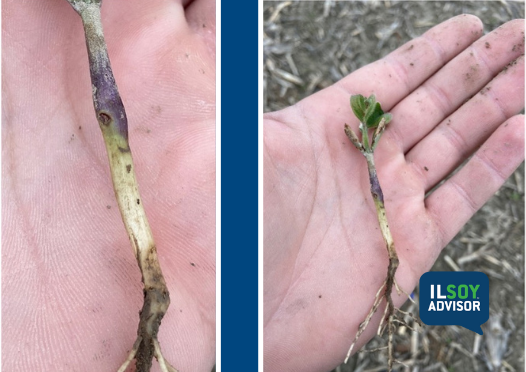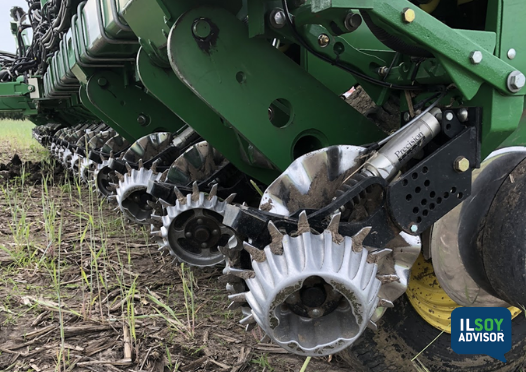ILSOYADVISOR POST
Agronomy: Selecting Soybean Varieties for Greater Economic Value
There has been a lot of discussion lately about soybean composition or protein and oil concentration. Farmers may wonder why they should care about the protein and oil concentration in their soybeans. The bottom line is that soybean composition ultimately impacts the economic value (or the “Estimated Processed Value” (EPV)) ofsoybean meal and oil. EPV is impacted by the yield and quality of the soybean meal and oil yield.This chart shows how EPV and soybean prices track together. The greater the EPV, the more farmers can get paid for their soybeans.
 How can farmers increase the opportunities for receiving higher prices for soybeans with desirable protein and oil concentration? Soybean composition is impacted by environment, the weather and genetics. It is unlikely farmers will relocate and no one can control the weather! However, farmers have alternatives when it comes to growing high-yielding varieties that meet their agronomic needs while delivering soybeans with high economic value to the soybean industry. Soybean farmers can compare the yield performance, composition and economic value of different varieties grown at single locations, or across different years or locations at the USB Soybean Quality Toolbox (http://unitedsoybean.org/farmer-resources/tools/production-resources/soybean-quality-toolbox/).
How can farmers increase the opportunities for receiving higher prices for soybeans with desirable protein and oil concentration? Soybean composition is impacted by environment, the weather and genetics. It is unlikely farmers will relocate and no one can control the weather! However, farmers have alternatives when it comes to growing high-yielding varieties that meet their agronomic needs while delivering soybeans with high economic value to the soybean industry. Soybean farmers can compare the yield performance, composition and economic value of different varieties grown at single locations, or across different years or locations at the USB Soybean Quality Toolbox (http://unitedsoybean.org/farmer-resources/tools/production-resources/soybean-quality-toolbox/).
To illustrate how farmers can use the Toolbox website, I found two varieties (Variety A and B) grown at the same location in Illinois. These varieties are marketed by the same company, have the RR2 trait and are from the same maturity group. The following table shows the 2013 yield, and protein and oil concentration results for Varieties A and B. While these varieties had about the same yield, Variety A produced soybeans with almost 36% protein and Variety B’s protein concentration was about 33% protein.
 The difference in EPV per bushel between Variety A and B was $0.49. That is almost $34 per acre difference in economic value that could be passed down to soybean growers. Why would farmers not want to produce the best quality soybeans possible? If the only thing every farmer in the area had to do was plant Variety A instead of Variety B, the market would ultimately reward the area farmers with higher prices, something every farmer would like to have.
The difference in EPV per bushel between Variety A and B was $0.49. That is almost $34 per acre difference in economic value that could be passed down to soybean growers. Why would farmers not want to produce the best quality soybeans possible? If the only thing every farmer in the area had to do was plant Variety A instead of Variety B, the market would ultimately reward the area farmers with higher prices, something every farmer would like to have.
Sharon Bard, Ph.D.
Centrec Consulting Group, LLC
Dr. Sharon Bard is a manager at Centrec Consulting Group, LLC in Savoy, Illinois. Her consulting work in recent years has focused on biofuels, soybean trait innovation, and soybean and corn quality.




Comments
Add new comment